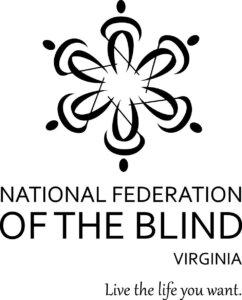BGL, ACLU of Virginia, and disAbility Law Center of Virginia file complaint against Virginia Department of Corrections on behalf of the NFB of Virginia and individual plaintiffs for denying equal services to blind inmates.
 BGL attorneys Eve Hill, Monica Basche, and Evan Monod—along with co-counsel from the ACLU of Virginia and the disAbility Law Center of Virginia—have filed a complaint in the Eastern District of Virginia against the Virginia Department of Corrections (VADOC), individual VADOC officials, the companies that provide healthcare to VADOC inmates, and the Virginia Information Technologies Agency on behalf of the National Federation of the Blind of Virginia and seven incarcerated blind men being denied equal access to services and programs available to sighted incarcerated people.
BGL attorneys Eve Hill, Monica Basche, and Evan Monod—along with co-counsel from the ACLU of Virginia and the disAbility Law Center of Virginia—have filed a complaint in the Eastern District of Virginia against the Virginia Department of Corrections (VADOC), individual VADOC officials, the companies that provide healthcare to VADOC inmates, and the Virginia Information Technologies Agency on behalf of the National Federation of the Blind of Virginia and seven incarcerated blind men being denied equal access to services and programs available to sighted incarcerated people.
Michael McCann, Kevin Muhammad Shabazz, Patrick Shaw, and William Stravitz are currently incarcerated at Deerfield Correctional Center; Nacarlo Antonio Courtney, William Hajacos, and Wilbert Rogers are currently incarcerated at Greensville Correctional Center.
The complaint alleges that VADOC has relied on other incarcerated people to act as so-called “caregivers” for blind prisoners. To fill out such critical materials as requests for medical visits or grievance forms, blind prisoners must ask their “caregivers” to do it for them, as well as to read out loud to them everything from prison policies to private correspondence.
“Relying on other incarcerated people puts blind people in VADOC facilities at the mercy of sighted prisoners and forces them to give their peers access to their private information,” said Eve Hill, partner at Brown, Goldstein, and Levy. “Technology is readily available that VADOC could—and must—use to provide private and independent access to materials for blind people in VDOC custody.”
VADOC does not even guarantee blind prisoners access to their “caregivers.” Mr. Rogers and Mr. Shaw, for example, were separated from their “caregivers” by prison transfers and the pandemic, forcing them to pay other prisoners to help them. Mr. McCann’s “caregiver” has a bunk on the opposite side of their housing unit, so every time he needs help, Mr. McCann must try to navigate object-strewn aisles. Accidentally bumping into corrections officers and other incarcerated people along the way has led to physical altercations that have injured Mr. McCann—although Deerfield officials refused to review surveillance video of one such assault when, due to his visual impairment, Mr. McCann could not identify his assailant.
The ADA and Section 504 of the Rehabilitation Act prohibit covered entities like correctional facilities from excluding people with disabilities from services, activities, or programs. Yet Mr. Shaw was turned away from a computer class when he attempted to sign up for educational programming, and the supervisor of Mr. Shabazz’s pod still refuses to consider his applications for a higher-paid work assignment on the grounds that his blindness poses a “safety risk.” In addition, following his vision loss, VADOC removed Mr. Courtney from his work assignment entirely.
Mr. Hajacos, for his part, was given an ultimatum: he could move to a housing unit where he could keep his job, but lose his accommodations, or he could remain in his housing unit with his accommodations, where he would lose his job.
Perhaps most galling, VADOC has failed to provide medically necessary treatment for the very same visual impairments that it has used as a basis to deny blind incarcerated people equal access to jobs, services and programs.
Mr. Courtney, for example, has struggled since 2016 to receive regular appointments and medical treatment for the keratoconus that he was diagnosed with while in VADOC custody. Without it, his eyesight has deteriorated. Mr. Stravitz, too, was diagnosed with cataracts while in VADOC custody, and since he requires surgery, VADOC refuses to provide him with corrective eyewear. Ten months later, VADOC still had not scheduled—much less performed—the necessary surgery, nor has VADOC provided him with corrective eyewear.
By failing to provide blind people who are incarcerated in its custody with equal access to services and programs that it makes available to sighted people, VADOC is violating the ADA, Section 504, the Virginians with Disabilities Act, and the Eighth Amendment of the U.S. Constitution.
The complaint calls on the court to order VADOC to cease violating the rights of blind prisoners in its custody, as well as to award monetary damages to the seven men named as plaintiffs.
Founded in 1982, Brown, Goldstein & Levy is a 20-lawyer law firm based in Baltimore, Maryland, with an office in Washington, DC. The firm is nationally recognized in a wide variety of practice areas, including complex civil and commercial litigation, civil rights, health care, family law, and criminal defense. Above all else, Brown, Goldstein & Levy is a client-centered law firm with decades of experience bringing passionate, effective advocacy to our joint fight for justice.
Learn more about Eve Hill here.